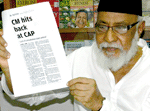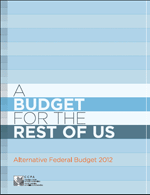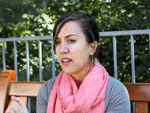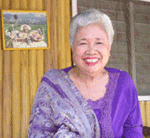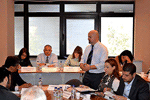Published on Wed, 2012-03-21 08:30
The Consumers Association of Penang (CAP, a member of the Malaysian Social Watch coalition) is complaining on the lack of public consultation by the Penang state government regarding several mega projects that include the construction of a 6.5 km undersea tunnel, a 12 km road and two bypasses of more than 4.0 km. |
Published on Tue, 2012-03-20 08:35
With the release of its annual Alternative Federal Budget, the Canadian Centre for Policy Alternatives (CCPA) urges the federal government to table a detailed budget that restores Canadians’ trust in the economy, public institutions, and democracy. The proposal launched by the CCPA, one of the national focal points of Social Watch in the North American country, addresses the concerns of mainstream Canada by putting forward a public investment plan that promotes a better quality of life for all Canadians, not just an elite few. |
Published on Mon, 2012-03-19 14:57
Tunisian and Egyptian civil society organizations “are not just looking at political reform, but also looking at economic reform, debt cancellation, and the relationship with the European Union (EU) and overall transition process,” according to Kinda Muhamadieh, programme manager at the Arab NGO Network for Development (ANND). |
Published on Thu, 2012-03-15 13:45
The impact of typhoons, earthquakes, climate change and other external factors make it difficult for the Philippines to reach its economic growth targets of 5 percent to 6 percent this year and 6 percent to 7 percent next year, warned Social Watch Philippines this week. |
Published on Thu, 2012-03-15 13:43
The Mediterranean Migration Network (MMN) was officially launched during a two-day kick-off meeting in Nicosia, on March 1-2. The meeting was organized by the MMN coordinator, the research and development centre CARDET, focal point of Social Watch in Cyprus. |
SUSCRIBE TO OUR NEWSLETTER

